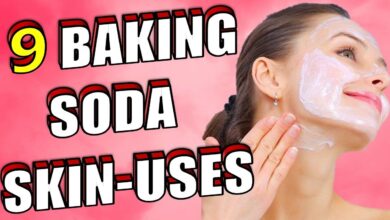Here are some common causes of this condition (5):
- Gum diseases (gingivitis or periodontitis)
- Tooth decay
- Trauma or injury
- Gum surgery
- Weak immunity
- Bacterial infection
- Poor oral hygiene
- Impacted teeth
- Dental procedures (extractions or root canals)
- Tobacco use
Identifying a gum boil is the first step towards treating it. Know more in the next section.
What Does A Gum Boil Look Like?
A gum boil appears as a swollen bump on the gums that are closer to a tooth. It is often red, pus-filled, and tender to touch. The size of the boil can range from a small pimple-like bump to a larger, more noticeable swelling.
In the next section, we talk about a few gum boil remedies you can try at home to help alleviate the symptoms.
Home Care And Natural Remedies For Gum Boil
Following these simple home remedies may not only reduce the symptoms, but may even prevent you from developing gum boils in the future.
- Good Oral Hygiene
Taking good care of your teeth can go a long way in keeping gum boils, tooth decay, and gum disease at bay. A few tips to follow:
- Brush your teeth twice every day.
- Floss your teeth daily.
- Visit a dentist twice a year for a cleaning and checkup.
- Limit sugary drinks and foods.
- Stop Smoking
Studies suggest that smoking has been associated with the development of gum disease. This is because smoking changes the human microflora in the teeth which may lead to the destruction of the tissue. Smoking may also reduce the effectiveness of the treatment for gum disease (6). Cutting off the habit of smoking and chewing tobacco may reduce the risk of gum disease and help your gum heal after treatment.
- Gargle With Salt water
Salt is a natural antibacterial and disinfectant (7). Studies suggest that rinsing with salt water may help promote gum health and oral wound healing (8). You can mix 1 teaspoon of salt in 1 cup of lukewarm water. Gargle the mixture in your mouth for 30 seconds before spitting it out. Repeat this 2 to 3 times regularly.
- Rinse Your Mouth With Hydrogen Peroxide Mouthwash
Hydrogen peroxide is widely used as an antimicrobial agent and may help fight against different types of bacteria and microbes (9). A 2011 review suggested that hydrogen peroxide mouthwash along with daily oral hygiene may be instrumental in reducing gingival inflammation in the long run (10).
A study was conducted in 2017 to see the effectiveness of hydrogen peroxide on patients with moderate to severe periodontitisi XA gum infection that causes damage to the soft tissues and bone that support the teeth and can lead to tooth loss. . The authors found that patients who had been given the hydrogen peroxide treatment exhibited fewer symptoms than the control group that did not receive the treatment (11). To make a hydrogen peroxide mouthwash, combine 1 part of hydrogen peroxide with 2 parts of water. Gargle with this mixture for 30 seconds before spitting out. Do this twice a day.
- Turmeric Paste
Turmeric has been used for centuries to treat various medical conditions. According to a study, turmeric may help treat periodontal diseases and may reduce dental pain (12). Another study reported that curcumin, the active compound present in turmeric, may be instrumental in preventing gum disease (13). To make a paste, combine 1 teaspoon of turmeric with ½ teaspoon of salt and 1⁄2 teaspoon of mustard oil. Brush your teeth with this paste twice every day. Let it sit for 2 to 5 minutes and then thoroughly rinse your mouth with water.
- Essential Oils
There are many essential oils that may inhibit antimicrobial activity. Research suggests that tea tree, thymei XAn aromatic herb that belongs to the mint family and yields a medicinal oil with anti-inflammatory and antimicrobial properties. , and peppermint oil may be as effective as a traditional antiseptic against oral microbes (14). To use essential oils for oral health, add 1 drop of essential oil to your mouthwash or regular toothpaste. For rinsing, you can mix 1 drop of essential oil with a quarter of water.
 Quick Tip
Quick Tip
Opt for clove or tea tree essential oils. Apply directly or as diluted oils to the affected area.
Even after trying these gum boil remedies, gum boils may remain. In that case, seeking medical treatment is the next step.
Medication And Dental Procedures
open next page to continue reading….




